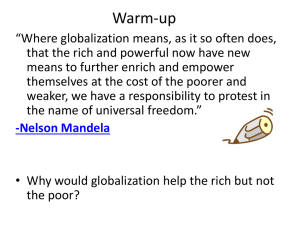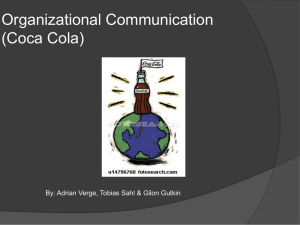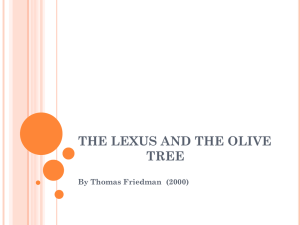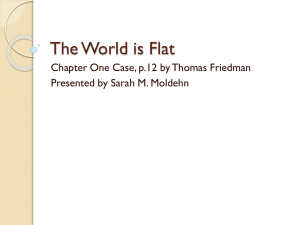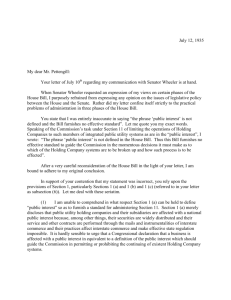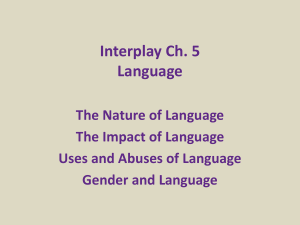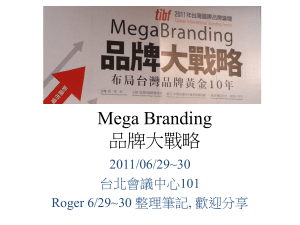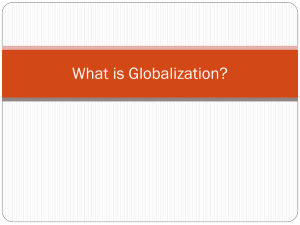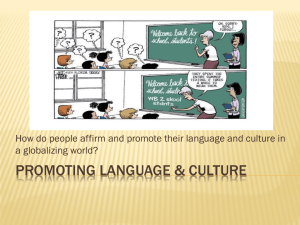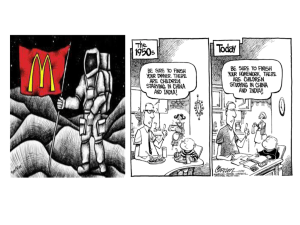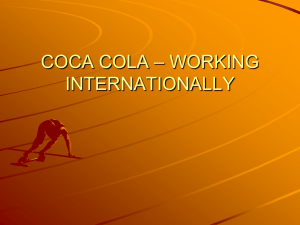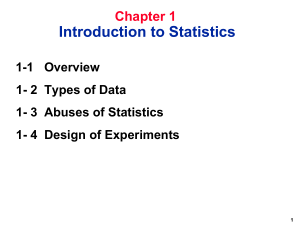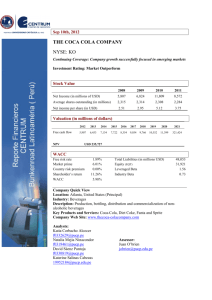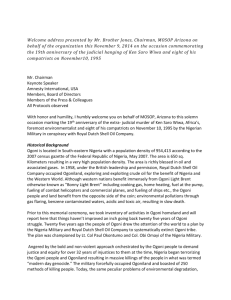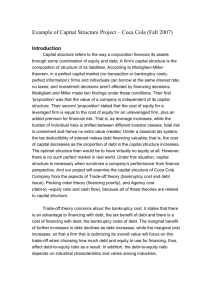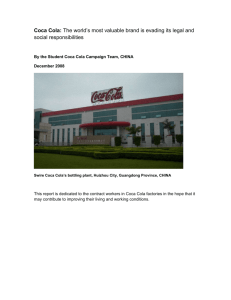Globalization and Human Rights Workshop Presentation
advertisement
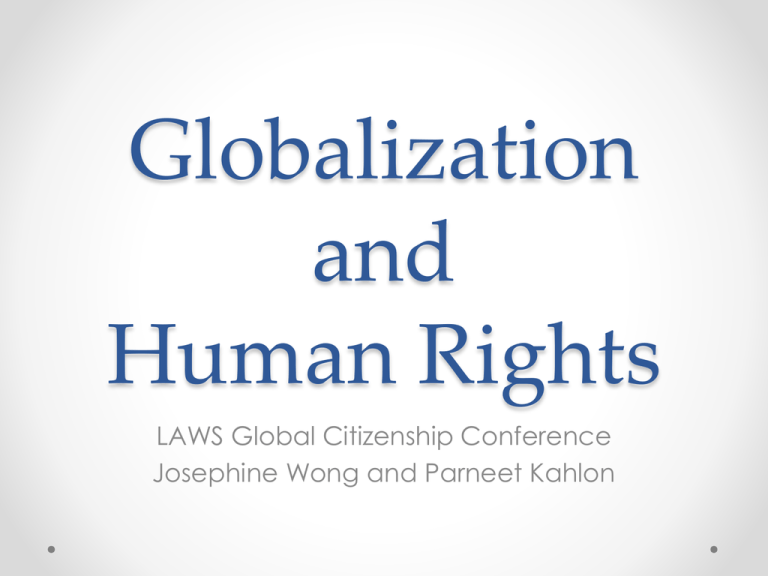
Globalization and Human Rights LAWS Global Citizenship Conference Josephine Wong and Parneet Kahlon Agenda • The globalization and human rights nexus o Definitions and Implications • Case studies o The oil and beverage industries – who knew? • Where do we go from here? o Things we can do o Resources The Nexus Globalization and Human Rights What is globalization? Ongoing process Across Time and Space Integration Economies Communication Ideas Trade Examples of globalization • Smoothie: o o o o Banana from Colombia Strawberries from California Milk from Michigan Juice from South Africa • Clothing: o o o o Socks from Bangladesh Shirt from Thailand Jeans from India Sweater from Cambodia What are human rights? Guaranteed Universal Rights and Freedoms Universal Declaration of Human Rights Examples of human rights - Freedom of assembly - Freedom of religion - Right to life - Freedom of expression - Right to equality before the law - Freedom from discrimination Clip Globalization and human rights • Companies operate across borders and are gaining increasing influence and power • Corporate activity has not always benefited the society it operates in • There are few effective tools to prevent human rights abuses or hold companies accountable • People affected are left powerless and vulnerable • Natural environments are exploited, unprotected, and have devastating long-term implications Case Studies What’s happening in the world? Case #1 A large oil company begins operations in Nigeria. As people living in the oilextraction region begin to voice their concerns with regards to environmental and worker abuses, the company finances the military who then conduct mass raids. The leader of the group calling for justice faces unfounded accusations and is eventually executed. Wiwa v. Royal Dutch Shell Shell began oil production in Nigeria in 1958 and worked with the government to quell opposition to its presence. Shell financed and assisted violent military raids against popular movements by the Ogoni people who raised concerns with respect to the widespread poverty, inequalities, human rights abuses, and environmental degradation occurring in What are the pros and cons of the region. Wiwa, the founder and leader of the human rights group called Movement for the Survival of the Ogoni People, was falsely accused, arrested, detained, convicted, and executed by hanging in 1995. The case of Wiwa v. Royal Dutch Shell was brought by human rights groups and lawyers against Shell on grounds of human rights violations, crimes against humanity, and torture. In 2009, Shell agreed to a settlement of $15.5 million. settlements? ABC News (http://www.abc.net.au/news/stories/ 2009/06/09/2593497.htm) Case #2 A large American beverage manufacturer has partner factories in Colombia. Both the beverage corporation and the partner companies face charges of directing paramilitary groups in the intimidation, kidnap, and murder of trade unionists. The court dismisses the case against the beverage corporation on the grounds that the events are geographically too far removed from the corporations headquarters. In 2001, Sinaltrainal, representing workers in Colombian facilities, brought an action Sinaltrainal v. alleging Coca Cola’s complicity in human Coca Cola rights abuses committed by Colombian paramilitaries against trade unionists. The claims outline various human rights abuses including the torture, kidnapping, unlawful detention, and murder of Sinaltrainal leaders and members. The case against Coca in 2003 HowCola dowas wedismissed draw the line when between corporations’ the Court ruled that the abuses were too with regards far“apathy” removed from Coca Cola’s to government action vs. headquarters in the “support” US. Subsequently, the corporations’ of government action? case against two of Coca Cola’s Colombian bottling companies were dismissed in 2006. The court held that the plaintiffs’ claims did not suffice to find war crimes under international law and failed to draw a close enough connection between the Colombian government and the three defendant companies. Clip Where do we go from here? Things we can do • Learn about human rights issues: they are everywhere o What’s in the news? • Raise awareness o Talk to your family, friends, teachers… o Spark dialogue and discussion • Become a member of a human rights group • Advocate o Write to the government and speak to community leaders • Be conscious of everyday life o Notice where your clothing and food comes from o Think about how it got to you o Question how it was made, who was involved, and the impact it may have no other human beings and natural environments around the world Resources • Earth Rights International o http://www.earthrights.org/ • Business and Human Rights Resource Centre o http://www.businesshumanrights.org/Home • CorpWatch o http://www.corpwatch.org • Amnesty International o http://www.amnesty.org • U of T’s International Human Rights Program o http://www.utorontoihrp.com • David Asper Centre for Constitutional Rights o http://www.aspercentre.ca Questions?

